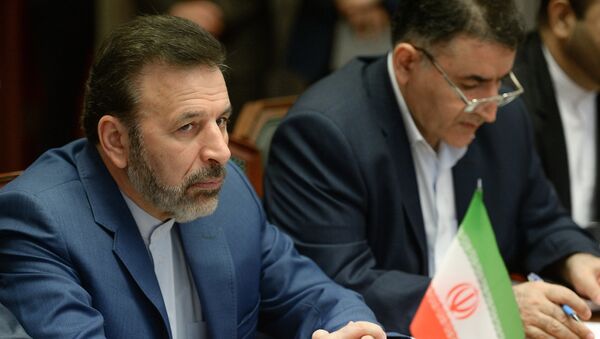Iran's relations with Saudi Arabia should not become like Iran's relations with the US, Iranian President Hassan Rouhani's Chief of Staff Mahmoud Vaezi said.
He added that Iran and Saudi Arabia should work together to resolve problems.
"The relations between Iran and its neighbour Saudi Arabia should not become like the relationship between Tehran and the United States ... Tehran and Riyadh should work together to resolve their problems," Vaezi said, as quoted by the IRNA state news agency.
Vaezi's statement comes amid an ongoing escalation of tensions between Iran and the United States following the death of Major General Qasem Soleimani in a US drone attack at the Baghdad airport on 3 January. In retaliation to Soleimani's death, Iran attacked US military bases in Iraq.
After the killing of Soleimani, Iraqi Prime Minister Adil Abdul-Mahdi revealed in a conversation with Iraqi lawmakers that the assassinated commander had arrived in Baghdad to discuss measures being taken to ease the confrontation between Iran and Saudi Arabia. "I was supposed to meet him in the morning the day he was killed. He came to deliver a message from Iran in response to the message we had delivered from the Saudis to Iran," Mahdi said.
Iran and Saudi Arabia, the two largest countries in the Middle East, have historically competed over geopolitical and religious reasons. Saudi Arabia severed diplomatic ties with Iran in January 2016 after its missions in Tehran and Mashhad were attacked by violent mobs in an act of revenge for the Saudis' execution of famous Shiite preacher Nimr Baqir al-Nimr. Bahrain, Sudan and Djibouti followed suit.
Tehran and Riyadh support different sides in the Yemeni war between the Houthis and Saudi-supported government of President Abdrabuh Mansour Hadi. In the most recent development, Riyadh blamed Tehran for the attacks on Saudi oil refineries, which the Houthis claimed responsibility for. Iran denied its involvement and said the Yemeni rebels had the right to defend themselves against Saudi Arabia.




